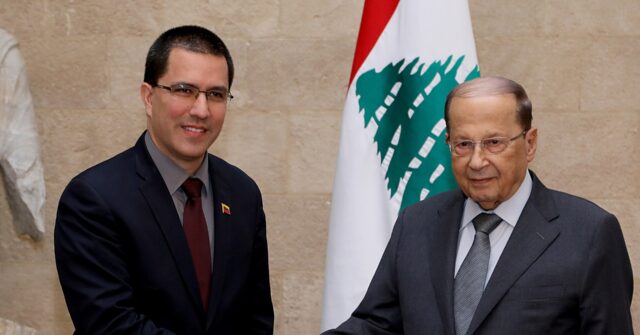In the wake of Israel’s self-defense operations following the attacks by Hamas on October 7, 2023, the Venezuelan government, under the rule of Nicolás Maduro, has announced the dispatch of a notable 14 tons of humanitarian aid to Lebanon. This initiative serves as a political statement against perceived Israeli aggression and demonstrates Venezuela’s longstanding support for regional allies such as Hamas and Hezbollah. The shipment is prominently positioned within a broader context of heightened Israeli military action against Hezbollah’s leadership in Lebanon, which Maduro has historically backed, exhibiting ideological solidarity through “anti-Zionist” rallies and labeling Israeli actions as genocidal.
Venezuela’s choice to send such humanitarian assistance has drawn attention, especially considering its status as one of the world’s most impoverished nations. Once a prosperous country rich in oil, Venezuela’s decline commenced after the socialist policies implemented by Hugo Chávez in 1999. The economy has since been ravaged, with a staggering 73 percent loss in gross domestic product (GDP) over the past decade. This economic collapse has precipitated an unprecedented migrant crisis, with around 8 million Venezuelans fleeing the country—a movement comparable only to those stemming from the conflicts in Syria and Ukraine. The government stopped tracking poverty statistics in 2015 amidst a mounting humanitarian crisis, leading to widespread suffering and a societal condition colloquially termed the “Maduro diet,” reflecting extreme malnutrition among the populace.
The humanitarian aid sent to Lebanon is reportedly being supervised by Yván Gil, Maduro’s foreign minister, who publicly frames the shipment as an act of solidarity with those allegedly victimized by “Israeli Zionism.” This move marks a significant deviation from the Maduro regime’s long-standing reluctance to accept foreign humanitarian assistance, particularly from the United States. In earlier crises, high-ranking officials, including Vice President Delcy Rodríguez, decried U.S. aid as contaminated and poisonous, propagating the unfounded narrative that such assistance was a form of bioweapons used against the Venezuelan people. This prior stance highlights the regime’s attempts to maintain control over narrative and aid distribution amidst domestic deprivation.
The government’s distribution mechanisms, particularly through the “Local Committees for Supply and Production” (CLAP), have led to gross mismanagement of aid intended for Venezuelans. While these CLAP boxes are marketed as subsidized food packages, they often contain substandard or expired items, causing additional suffering to the already impoverished citizens. Reports of rotten food, insect contamination, and expired goods in these distributions have raised significant concerns regarding the sincerity and effectiveness of the alleged humanitarian response from Maduro’s regime. There remains a lack of clarity on whether the aid sent to Lebanon was diverted from these impoverished reserves primarily designated for Venezuelans.
The dire situation in Venezuela is underscored by recent findings from the United Nations, which estimates that over 80 percent of Venezuelans currently live in poverty, with a staggering 53 percent experiencing extreme poverty, unable to afford basic meals. Research from the Andrés Bello Catholic University (UCAB) corroborates these alarming statistics, indicating that more than half of the population grapples with poverty, signifying an overall decline in living standards, curtailing access to essential resources like food, healthcare, and education. This humanitarian crisis juxtaposes sharply against the government’s decision to project solidarity with international allies like Hezbollah amid local suffering.
Moreover, Maduro’s historical camaraderie with Hezbollah traces back to the administration of Hugo Chávez, who initiated partnerships aimed at strategic alliances with various terrorist entities. The Venezuelan regime has reportedly facilitated the distribution of passports to individuals linked with Hezbollah and orchestrated discussions centered around drug trafficking and arms distribution with terrorist leaders, suggesting a deeply entrenched relationship within this sphere. Such actions have been critical in establishing Venezuela as a strategic ally for Iran and its associated militant factions, further complicating regional dynamics and symbolizing the extent to which internal policy intertwines with external geopolitical maneuvers.
In the midst of the ongoing Israeli operations, the death of Hezbollah leader Hassan Nasrallah in a targeted Israeli airstrike has added another layer of tension and potential transformation within this context. The implications of Venezuelan aid reaching Lebanon extend beyond mere humanitarian gesture, encapsulating decades of allegiances forged through mutual ideologies against Western influences. As the situation evolves, it remains crucial to monitor the international ramifications of Maduro’s strategies, particularly concerning resources that, despite being positioned as humanitarian, might inadvertently serve to bolster militant operations in a region already fraught with instability and conflict.

